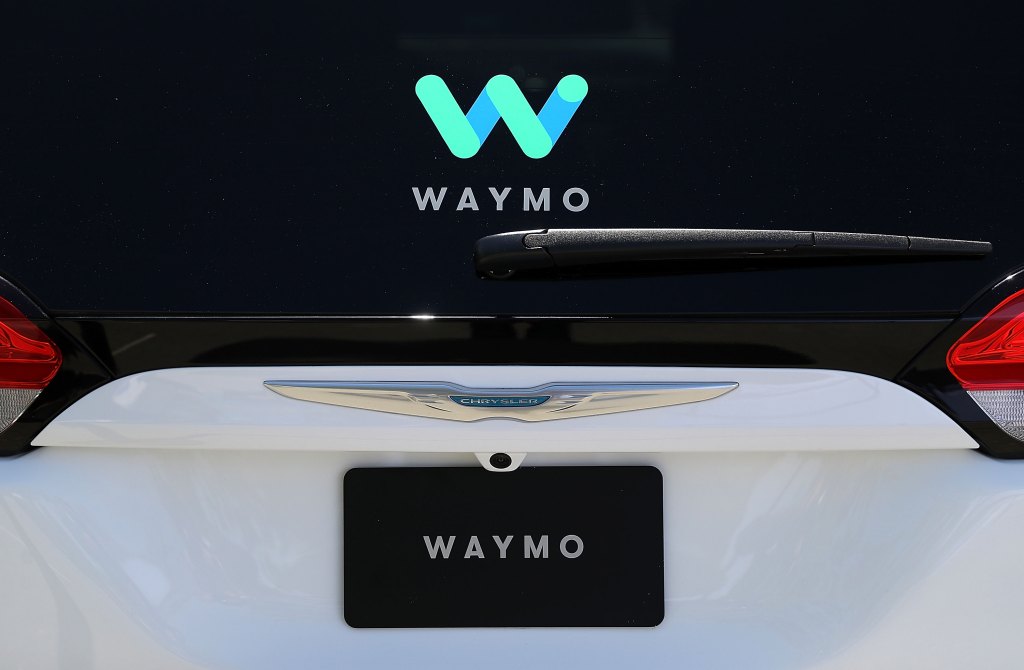Waymo’s chief financial officer Ger Dwyer and its head of automotive partnerships and corporate development Adam Frost — two longtime executives at the autonomous vehicle company — are leaving this month, departures that comes amid some executive shuffling following CEO John Krafcik’s exit earlier this year.
Dwyer and Frost’s departure was shared internally this week, according to multiple sources. Waymo has confirmed to TechCrunch that Dwyer and Frost are leaving.
“We’re grateful to Ger and Adam for all they’ve done for Waymo and wish them all the best,” a spokesperson said in an emailed statement. “An executive search is underway for a new CFO to lead us into our next chapter as we continue to build, deploy and commercialize the Waymo Driver.”
Dwyer, who reported directly to parent company Alphabet’s executive leadership finance team, is among several executives who have left the company in the past five months. Krafcik announced in April that he was stepping down as CEO. Chief Safety Officer Deborah Hersman left in December and Tim Willis, who was head of manufacturing and global supply and general manager of Waymo’s Laser Bear lidar business, departed in February. Sherry House, who had been at Waymo since 2017 and was most recently treasurer and head of investor relations, left the company in April. She is now CFO at Lucid Motors.
Still, some of the critical leaders, and the people directly below them, have remained. Tekedra Mawakana, who was COO, and Dmitri Dolgov, the CTO, are now co-CEOs of Waymo and appear to have the support of Alphabet CEO Sundar Pichai, according to brief remarks he made during the company’s first-quarter earnings call. Department heads directly below Mawakana and Dolgov are still at Waymo with a few exceptions, according to LinkedIn profiles. In March, both David Twohig, who was director of Future Automotive at Waymo, and Qi Hommes, who was once head of system safety, left. Hommes is now director of system safety engineering and analysis at Zoox, according to LinkedIn.
Dwyer’s departure also comes at a time when the demand for CFOs has rocketed alongside the continuous string of public offerings, including those done via mergers with special purpose acquisition companies. House’s move to Lucid Motors, which is going public via a merger with a SPAC, is one example.
Dwyer is a longtime Google employee, who started at the company in 2006. He made the leap in August 2016 over to Waymo, just a few months before the former Google self-driving project officially announced it had spun out to become a business under parent company Alphabet.
During his tenure, Dwyer oversaw the financial side of the business in a period of explosive growth that took the company from a few hundred employees to more than 2,000 today.
Frost, who headed up automotive partnerships, has also been an important figure at Waymo. He came to Google’s self-driving project in 2013 after nearly 17 years at Ford Motor Co., according to LinkedIn records. He was initially hired as a chief engineer and then rose through the ranks to chief automotive programs and partnerships officer and eventually chief automotive and corporate development officer. Waymo has locked in a number of what it has described as exclusive partnerships with automakers over the past several years, including Volvo, Stellantis (formerly FCA), as well as one with Renault and Nissan to research how commercial autonomous vehicles might work for passengers and packages in France and Japan.
Waymo also expanded its geographic footprint beyond California during both Dwyer and Frost’s stints. The company brought its autonomous vehicles into cities like Austin and Kirkland, Washington for testing and established operations in the Phoenix suburb of Chandler, where it now operates a ride-hailing service called Waymo One using driverless vehicles as well as those with safety operators behind the wheel.
Last year, Waymo completed its first external round of fundraising, which was initially $2.25 billion and later expanded to $3 billion. The $2.25 billion round was led by Silver Lake with investments from Canada Pension Plan Investment Board, Mubadala Investment Company, Magna, Andreessen Horowitz and AutoNation and its parent company Alphabet. The extended capital came from new investors, including those managed by T. Rowe Price, Perry Creek Capital, Fidelity Management and Research Company and others.
The external raise followed a flurry of activity that suggested Waymo was ramping up its commercial enterprise, including expanding its core fleet in Mountain View, Calif., the Phoenix area and into Texas. Waymo also began to move beyond its robotaxi testing and began piloting new business applications for its autonomous vehicle technology such as delivery and trucking and even a plan to start selling its custom lidar sensors to companies in the robotics, security and agricultural technology industries.
It has also made numerous partners and at least one acquisition under Dwyer’s watch. Waymo acquired in December 2019 a U.K. company called Latent Logic that spun out of Oxford University’s computer science department. The company uses a form of machine learning called imitation learning that could beef up Waymo’s simulation efforts. The acquisition marked the launch of Waymo’s first European engineering hub in Oxford, U.K.
Automakers, suppliers and startups see growing market for in-vehicle AR/VR applications







